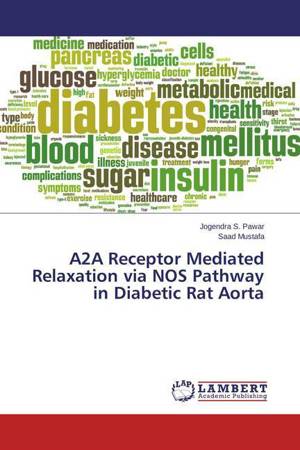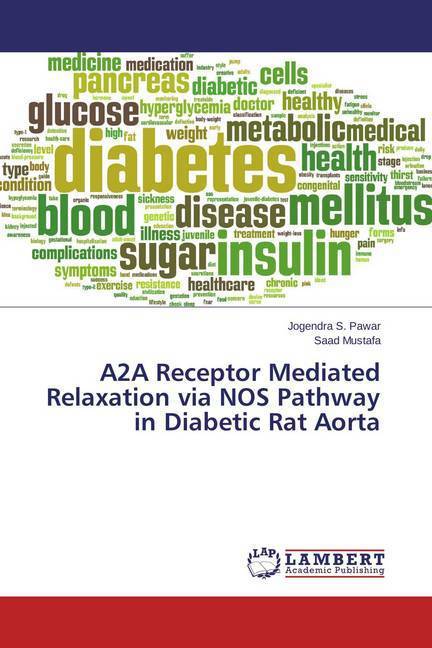
- Afhalen na 1 uur in een winkel met voorraad
- Gratis thuislevering in België vanaf € 30
- Ruim aanbod met 7 miljoen producten
- Afhalen na 1 uur in een winkel met voorraad
- Gratis thuislevering in België vanaf € 30
- Ruim aanbod met 7 miljoen producten
Zoeken
A2A Receptor Mediated Relaxation via NOS Pathway in Diabetic Rat Aorta
Jogendra S. Pawar, Saad Mustafa
Paperback | Engels
€ 39,95
+ 79 punten
Omschrijving
Diabetes is characterized by hyperglycemia. It is a metabolic disease caused due to insufficient secretion or action of endogenous insulin. Diabetes is always associated with cardiovascular diseases. Accumulation of atheromatous plaque with in the walls of the coronary arteries results in atherosclerotic heart disease. Adenosine receptors plays an important role in regulation of coronary heart flow by controlling the blood vessels contraction and relaxation . Here we have studied the A2A receptor mediated relaxation in diabetic rat aorta and its signalling pathway. The results obtained showed that there is reduction in the relaxation of diabetic rat aorta as compared with the normal rat aorta both in the presence and absence of endothelium. It was also noted that there is significantly higher ROS generation in diabetic rat aorta in comparison to normal healthy rats. So we can conclude that diabetes may induce change in the expression level of adenosine receptor and finally lower aorta relaxation. these changes correspond to some cardiovascular complications observed in diabetes.
Specificaties
Betrokkenen
- Auteur(s):
- Uitgeverij:
Inhoud
- Aantal bladzijden:
- 64
- Taal:
- Engels
Eigenschappen
- Productcode (EAN):
- 9783659710513
- Verschijningsdatum:
- 21/05/2015
- Uitvoering:
- Paperback
- Afmetingen:
- 150 mm x 220 mm
- Gewicht:
- 104 g

Alleen bij Standaard Boekhandel
+ 79 punten op je klantenkaart van Standaard Boekhandel
Beoordelingen
We publiceren alleen reviews die voldoen aan de voorwaarden voor reviews. Bekijk onze voorwaarden voor reviews.








